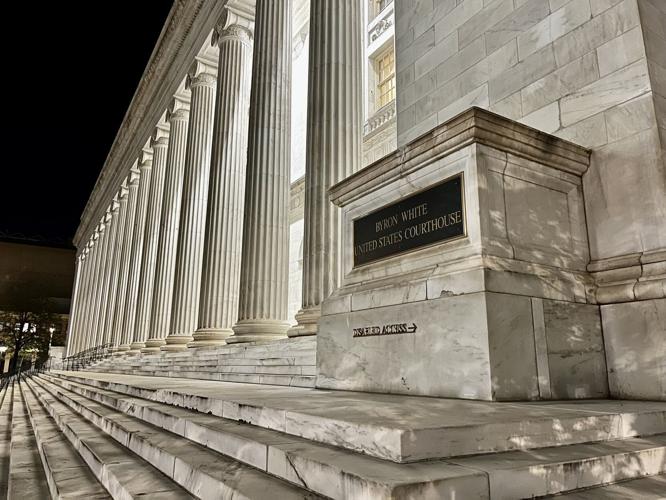A small percentage of funds stolen from Kansas’ unemployment system during the pandemic have been recovered, the state labor secretary says, but time is running out to find the rest.
The Kansas Department of Labor processed hundreds of millions of dollars in fraudulent unemployment payments during the COVID-19 pandemic, more than half of which came from state funds.
Amber Shultz, the state labor secretary, called it an “extremely stressful and unfortunate part of our agency’s history.”
She told legislators at a Jun. 10 hearing that the state has recovered about 2.4% of fraudulent funds, or $11 million.
The state labor department processed about $460 million in fraudulent payments during the pandemic, said Derek Helms, a department spokesman. An initial 2021 audit put the number at $700 million in processed fraudulent claims, which was deemed incorrect when the department refined the numbers, Helms said.
Of the $460 million lost, $292 million were from state funding, and the remaining $168 million were federal funds, he said.
The onus of recovering lost funds has fallen on banks and law enforcement. The labor department works with them but there are limits to its investigating power.
“The department can only prepare and recommend cases for prosecution,” Helms said. “Once we do that, we’re out of the mix.”
Sen. Rick Billinger, a Goodland Republican, wondered at a meeting of the Senate Committee on Government Efficiency why Kansas lost the money it did when other states had similar computer systems and didn’t lose nearly as much. --->READ MORE HERE
 |
There is seemingly 'no objective line that a court can draw' to identify when COVID-19 has resulted in property loss, wrote Judge Timothy Schutz
Colorado's second-highest court ruled on Wednesday that the COVID-19 pandemic and related public health orders did not cause a "direct physical loss" to the property of various assisted living facilities to the point of triggering insurance coverage.
By 2-1, a three-judge Court of Appeals panel relied on the reasoning of recent federal court opinions and a related Colorado Supreme Court decision that all concluded the novel coronavirus itself did not cause physical damage to property or render it uninhabitable.
"Having reached this conclusion, however, we caution that our analysis does not mean that COVID-19 can never be found to cause a direct physical loss," wrote Judge Timothy J. Schutz in the June 18 majority opinion. But in the case before the court, the plaintiffs' properties "remained habitable, even though the day-to-day facility operations were significantly impacted."
Judge Craig R. Welling disagreed, believing Spectrum Retirement Communities, LLC had alleged the danger posed by COVID-19 reached the point of affecting the use of its assisted living facilities' physical areas.
"I acknowledge that this is a close case that poses serious difficulties in drawing clear lines. This is because the insured property is only partially uninhabitable, not completely so," he wrote. Still, "Spectrum adequately alleged that sufficient portions of its facilities were rendered 'uninhabitable and highly dangerous' by COVID-19."
The lawsuit over Spectrum's insurance claim implicated four other Colorado cases providing a roadmap for when an airborne hazard affects physical property. --->READ MORE HEREFollow links below to relevant/related stories and resources:
Excessive drinking linked to jump in high blood pressure deaths during COVID pandemic, CDC report says
Smith & Wesson Stock Is Sinking. Gun Sales Are Falling After Pandemic-Era Peak.
USA TODAY: Coronavirus Updates
WSJ: Coronavirus Live Updates
YAHOO NEWS: Coronavirus Live Updates
NEW YORK POST: Coronavirus The Latest
If you like what you see, please "Like" and/or Follow us on FACEBOOK here, GETTR here, and TWITTER here.


No comments:
Post a Comment